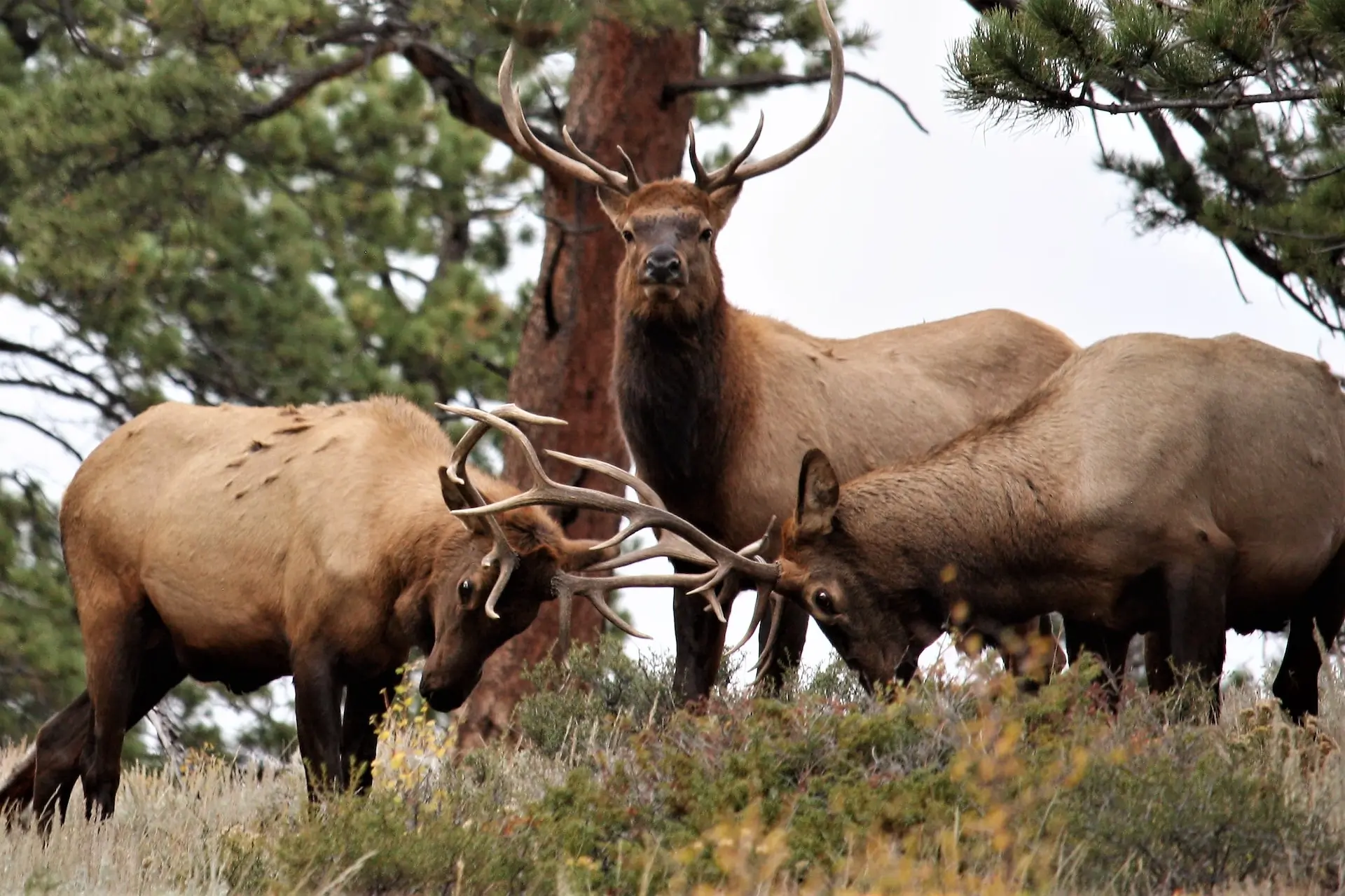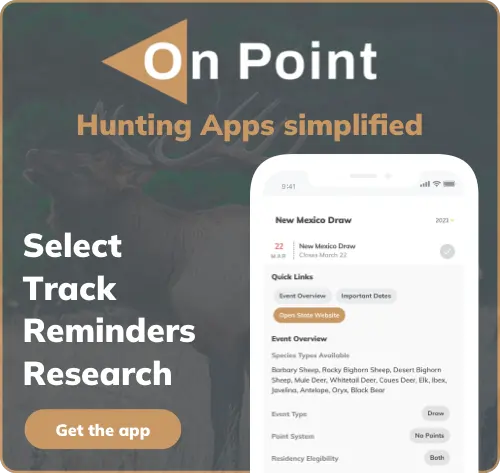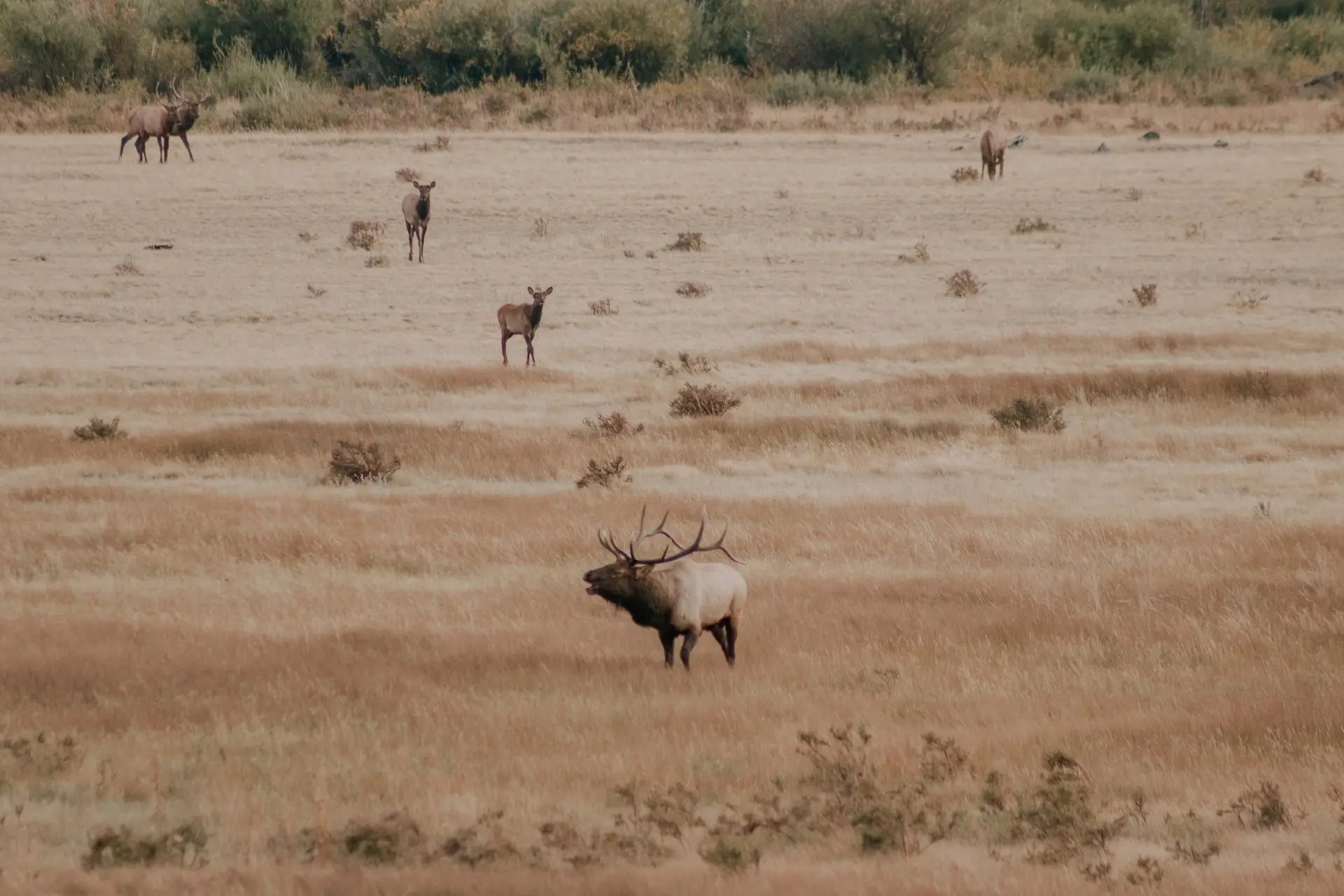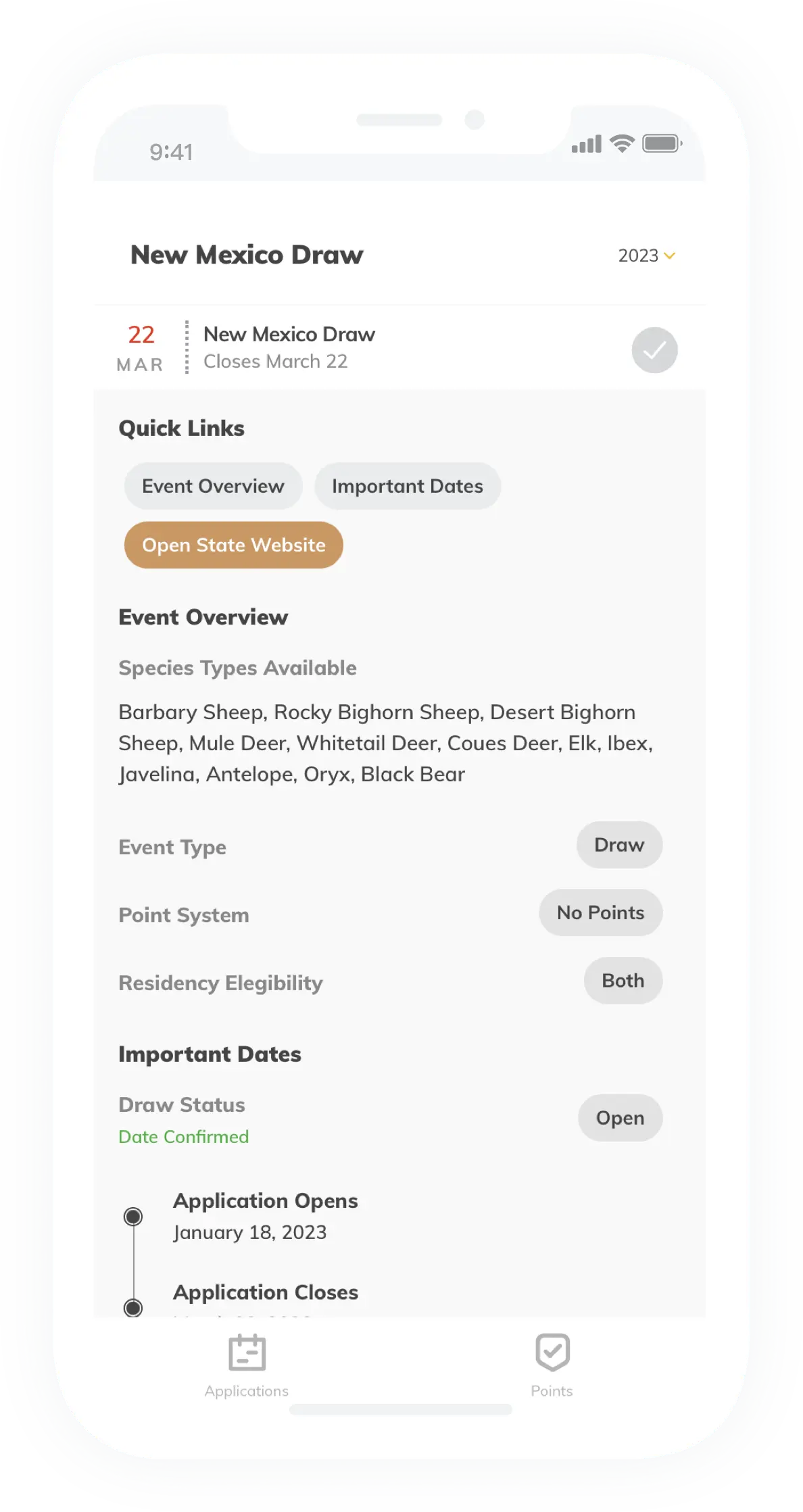CPW Recommends Tag Allocations Changes

Update May 26th: CPW was approved nonresident tag allocation changes.
The Colorado Parks & Wildlife Commission met March 15th to discuss several significant matters relating to big game hunting licenses in the state. Topics reviewed include Preference Point Banking, Point Group Averaging, and Big Game License Allocations between residents and nonresidents. According to CPW’s staff, these topics garnered public responses that could potentially be implemented by the 2024 big game hunting season, as summarized here.
Prior to the meeting CPW performed a survey on these topics, with of the responses gathered from 69% residents, and 31% from nonresidents. CPW staff indicated that any major changes to the Colorado big game tag allocation process should only proceed if supported by clear evidence that hunters are strongly in favor of such changes.
Colorado Big Game Tag Allocations – Elk, Deer, Bear, and Pronghorn
Colorado currently uses a 65% resident to 35% nonresident allocation for general hunt codes and 80% resident to 20% nonresident allocation for high-demand hunt codes. During the meeting staff reviewed two alternate options for tag allocations:
- A simple 75% resident, 25% nonresident allocation, across all hunt codes.
- A more restrictive nonresident allocation for high demand hunts, at 90% resident and 10% nonresident.
Survey participants were asked to rank the status quo system versus the two proposed alternates. Residents and nonresidents were split on the topic, based on the impact each proposal would have on allocations to the respective groups. 69% of resident hunters ranked status quo as their least preferred option, while only 8% of nonresidents placed it last.
Residents indicated high support for both proposed modifications, both which result in a net increase in licenses for residents. Nonresidents indicated greater support for the 75/25 overall allocation than the 90/10 high demand allocation, indicating a greater interest in hunt quality than hunt quantity among survey participants.
Allocation Recommendation
Based on the survey response, CPW is recommending to transition from the status quo to a 75/25 allocation. This would decrease the number of licenses for current high-demand hunt codes allocated to residents by 5%, approximately 100 licenses, while for all other hunt codes, licenses allocated to residents would increase by 10%, approximately 3,000 licenses, a win for residents. CPW cited the following reasons for their recommendation:
- Top issue for resident hunters – Resident preference for more substantial increase in net license allocation than the status quo
- Higher level of predictability in tag allocation
- Simplifies CPW operations and regulations
- Increases customer understanding
Preference Point Banking
CPW also discussed Preference Point Banking, a system whereby hunters use only the portion of their preference points needed plus potentially 2-3 additional points to draw and retain their remaining accumulated points. For example, if a hunter had 15 preference points, they could apply for a 3 point unit, and only use the needed points, plus the penalty.
Respondents were split fairly evenly on the topic, with 48% somewhat or strongly in support, and 42% somewhat or strongly opposed.
Preference Point Averaging
For group applications, Colorado currently uses the value of the lowest point holder in the group. In essence, all group members must have enough points to draw a tag for any member to draw a tag. Point averaging would take all group points, add them, and divide by the group number to determine the preference point amount for the group.
Approximately half of the respondents somewhat or strongly supported averaging group points, while 35% were somewhat or strongly opposed.
Point Recommendations
CPW Staff recommended maintaining the status quo for both Preference Point Banking and Group Averaging, based on the following rationales:
- Public comment form results
- Increasing complexity of hunting regulations
- Potential for point creep
- Online system logistics
- Commercialization of preference points
Comment Period and Next Steps
During the Commission Discussion, they requested guidance on any changes to these issues by May 2023 and agreed to adopt the staff recommendation of a 75/25 (R/NR) across-the-board allocation.





